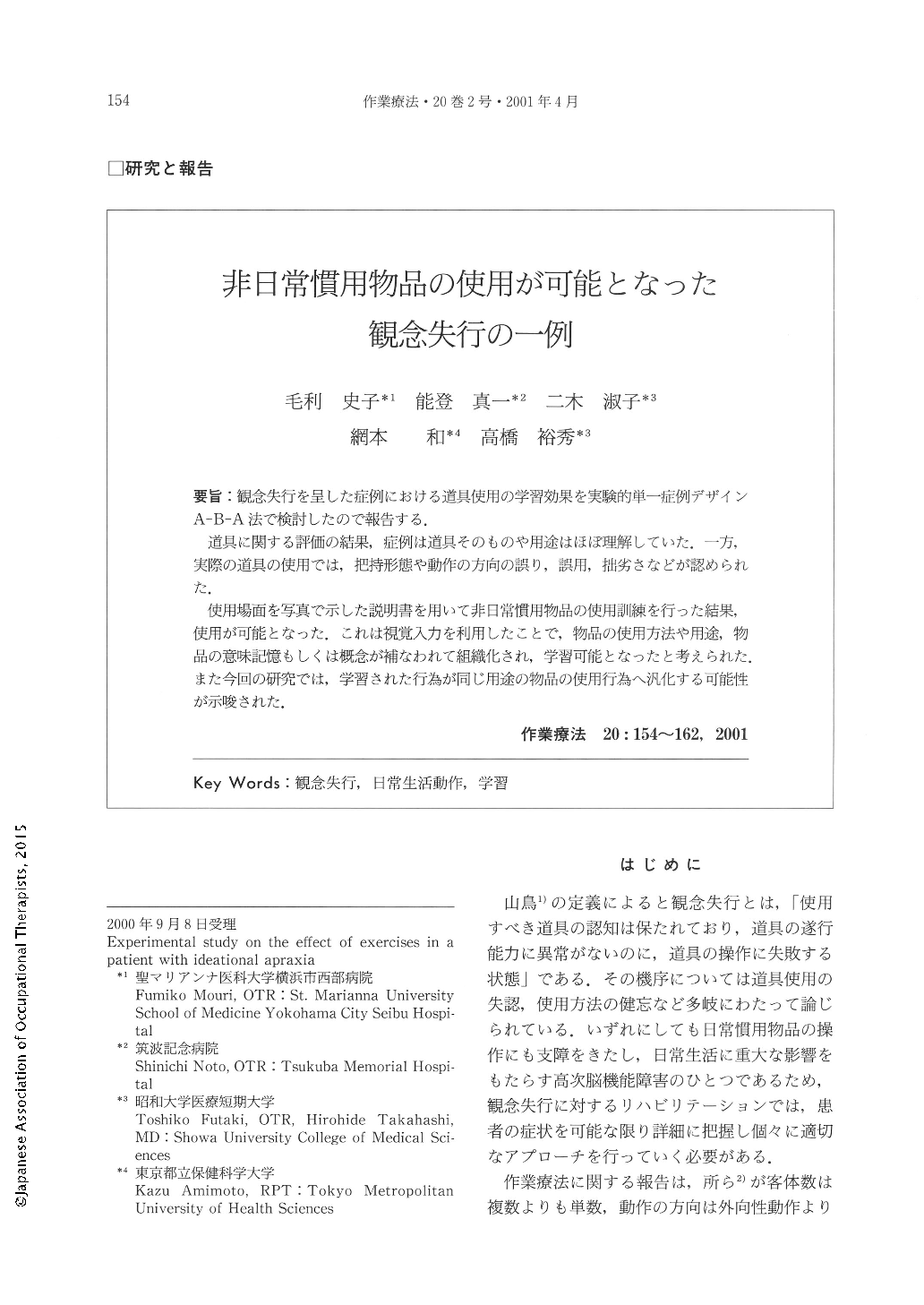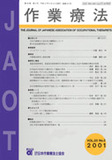Japanese
English
- 販売していません
- Abstract 文献概要
- 1ページ目 Look Inside
- 参考文献 Reference
- サイト内被引用 Cited by
要旨:観念失行を呈した症例における道具使用の学習効果を実験的単一症例デザインA-B-A法で検討したので報告する.
道具に関する評価の結果,症例は道具そのものや用途はほぼ理解していた.一方,実際の道具の使用では,把持形態や動作の方向の誤り,誤用,拙劣さなどが認められた.
使用場面を写真で示した説明書を用いて非日常慣用物品の使用訓練を行った結果,使用が可能となった.これは視覚入力を利用したことで,物品の使用方法や用途,物品の意味記憶もしくは概念が補なわれて組織化され,学習可能となったと考えられた.また今回の研究では,学習された行為が同じ用途の物品の使用行為へ汎化する可能性が示唆された.
The purpose of this study is to examine the effect of exercises, using tools with instructions shown by simple sentences and pictures. A-B-A design was used as the experimental single case design.
The subject is a 69-year-old male suffering from ideational apraxia and aphasia. He was incapable of using tools and objects, which caused difficulties in his daily living. He could name tools and select tools suitable for the specific action; however, he could not actually use the tools. Initially, we evaluated that he had apraxia. He could not manipulate tools.
We ordered the patient to have exercises using new tools that he had never used before, i.e., handdrill and crickhandle. He was asked to use the handdrill with instructions, but for the crickhandle, he had to use it without any instructions. After several exercises, he became capable of using the handdrill and making holes with it. In addition, he also became capable of using a crickhandle and making holes with it.
Judging from the fact that he became capable of using both tools well with or without instructions, we presume that once the concept of tool-object action (making holes) is obtained, the patient becomes capable of using similar tools in carrying out the action.

Copyright © 2001, Japanese Association of Occupational Therapists. All rights reserved.


